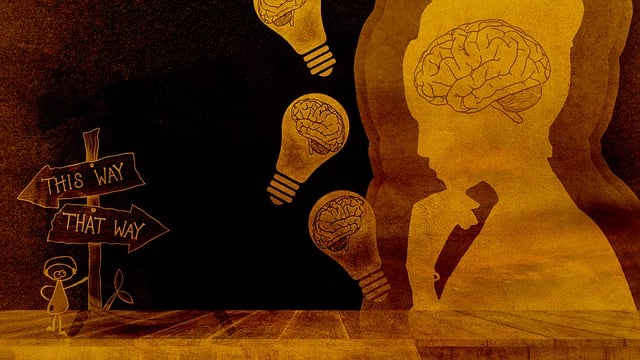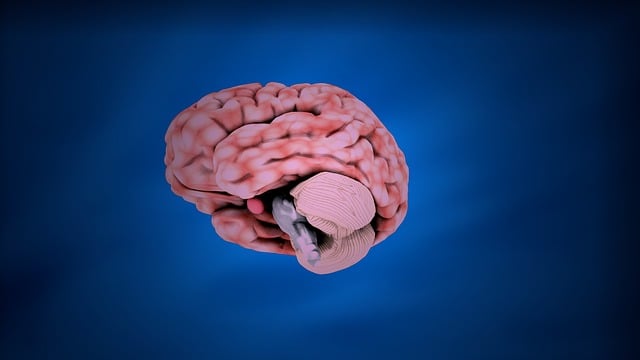The text discusses the significant impact of stigma on postpartum depression (PPD), hindering individuals from seeking aid due to fear of judgment. It highlights the delay in diagnosis and treatment, affecting not just sufferers but their families and communities. To combat this, it promotes understanding and challenging societal beliefs, open conversations about mental health, and providing trauma support services. The Parker Postpartum Depression Therapy (PPDT), an innovative approach combining cognitive behavioral therapy, mindfulness meditation, and risk assessment, is introduced as a strategy to reduce stigma and improve care access. Educational initiatives, media representation, and global efforts are also emphasized to dispel myths and create an inclusive environment where mental well-being is prioritized.
Mental illness stigma continues to be a significant barrier to treatment and recovery. This article explores comprehensive strategies aimed at reducing mental health stigma, from understanding its profound impact to innovative approaches like Parker Postpartum Depression Therapy. We delve into educational initiatives strengthening community support, the influence of media representation, and global efforts pushing for a stigma-free society. By examining these diverse avenues, we can foster empathy, dispel myths, and ultimately improve access to mental health care.
- Understanding Stigma and its Impact on Mental Health: A Comprehensive Overview
- Parker Postpartum Depression Therapy: A Promising Approach to Combat Stigma
- Educational Initiatives for Reducing Stigma in Communities
- Media Representation and Its Role in Shaping Public Perception
- Global Efforts and Strategies for a Stigma-Free Society
Understanding Stigma and its Impact on Mental Health: A Comprehensive Overview

Stigma surrounding mental health issues, such as postpartum depression (PPD), can have severe consequences for individuals seeking help. It often leads to feelings of shame and isolation, deterring people from openly discussing their struggles and, consequently, accessing much-needed support and treatment. The impact of stigma can be profound, affecting not just the individual but also their family and community. Many experience a delay in diagnosis and treatment due to fear of judgment, which can exacerbate symptoms and lead to more complex mental health challenges.
Understanding stigma is a crucial first step toward reduction efforts. It involves recognizing how societal beliefs and attitudes contribute to the marginalization of those with mental illnesses. Stigma often manifests as negative stereotypes and misconceptions, leading to discrimination and exclusion. By promoting self-awareness exercises that challenge these stereotypes, fostering open conversations about mental health, and providing trauma support services, we can create a more compassionate environment. Additionally, incorporating mindfulness meditation practices into therapy for PPD, for instance, has shown promise in reducing symptoms and breaking down barriers associated with seeking help.
Parker Postpartum Depression Therapy: A Promising Approach to Combat Stigma

The Parker Postpartum Depression Therapy (PPDT) is a promising approach in mental illness stigma reduction efforts, specifically targeting postpartum depression. This innovative therapy combines evidence-based practices such as cognitive behavioral therapy, mindfulness meditation, and risk assessment for mental health professionals to offer comprehensive care. By addressing postpartum depression early and effectively, PPDT aims to destigmatize mental illness and foster understanding within communities.
The integration of these strategies not only supports the individual experiencing postpartum depression but also educates their support networks. This holistic approach encourages open conversations about mental health, empowering individuals to seek help without fear of judgment. As part of broader mental illness stigma reduction efforts, PPDT holds potential for improving access to care and promoting a more inclusive society where mental well-being is prioritized.
Educational Initiatives for Reducing Stigma in Communities

Educational initiatives play a pivotal role in reducing the stigma surrounding mental illness within communities. Programs focused on raising awareness and promoting understanding can help dispel myths and misconceptions that often marginalize individuals facing challenges like Parker Postpartum Depression Therapy. Schools, community centers, and local organizations can host workshops, seminars, and interactive sessions to educate the public about mental wellness, self-care routine development for better mental health, and coping skills development.
These educational efforts should be inclusive, targeting diverse audiences to foster empathy and support. By equipping individuals with accurate information, we can create a more compassionate environment where those dealing with mental health issues feel safe to seek help without fear of judgment or discrimination.
Media Representation and Its Role in Shaping Public Perception

Media representation plays a significant role in shaping public perception about mental health. Positive and accurate portrayals can help reduce stigma by normalizing conversations around mental illness. For instance, media platforms have increasingly featured stories of individuals successfully managing conditions like Parker Postpartum Depression Therapy, demonstrating that recovery is possible. This shift has the potential to foster empathy among viewers and encourage those facing similar challenges to seek support without fear of judgment.
However, negative or stereotypical representations can perpetuate harmful misconceptions. Burnout Prevention Strategies for Healthcare Providers are essential to ensure professionals in the mental health sector maintain balanced lives and avoid contributing to biased narratives. Well-designed Mental Health Awareness and Education Programs can counteract these negative portrayals by educating the public on the diverse range of mental health issues, their causes, and effective treatment options. Through responsible media engagement, society can collectively work towards creating a more inclusive environment where individuals are empowered to prioritize and discuss their mental well-being openly.
Global Efforts and Strategies for a Stigma-Free Society

Mental illness stigma reduction efforts have gained global momentum, with organizations and governments collaborating to create a more understanding and supportive society. One significant strategy is raising awareness through educational campaigns that dispel myths surrounding mental health issues, focusing on conditions like Parker Postpartum Depression (PPD). These initiatives often involve community discussions, workshops, and social media campaigns to encourage open conversations and foster empathy.
Additionally, integrating self-esteem improvement programs into schools and workplaces has proven effective in reducing stigma. By promoting mental well-being from a young age and equipping individuals with coping mechanisms, these efforts aim to normalize conversations about mental illness. Strategies also include policy changes that ensure access to quality mental health services, improved mood management techniques, and the involvement of influential figures who share their personal experiences, thereby humanizing mental illness and paving the way for a stigma-free society.
Mental illness stigma reduction is a multifaceted global effort. From understanding the profound impact of stigma on mental health to innovative approaches like Parker Postpartum Depression Therapy, communities worldwide are navigating towards a more accepting society. Educational initiatives and responsible media representation play pivotal roles in reshaping public perception. By implementing evidence-based strategies, we can foster a stigma-free society where individuals feel empowered to seek help without fear of judgment.














